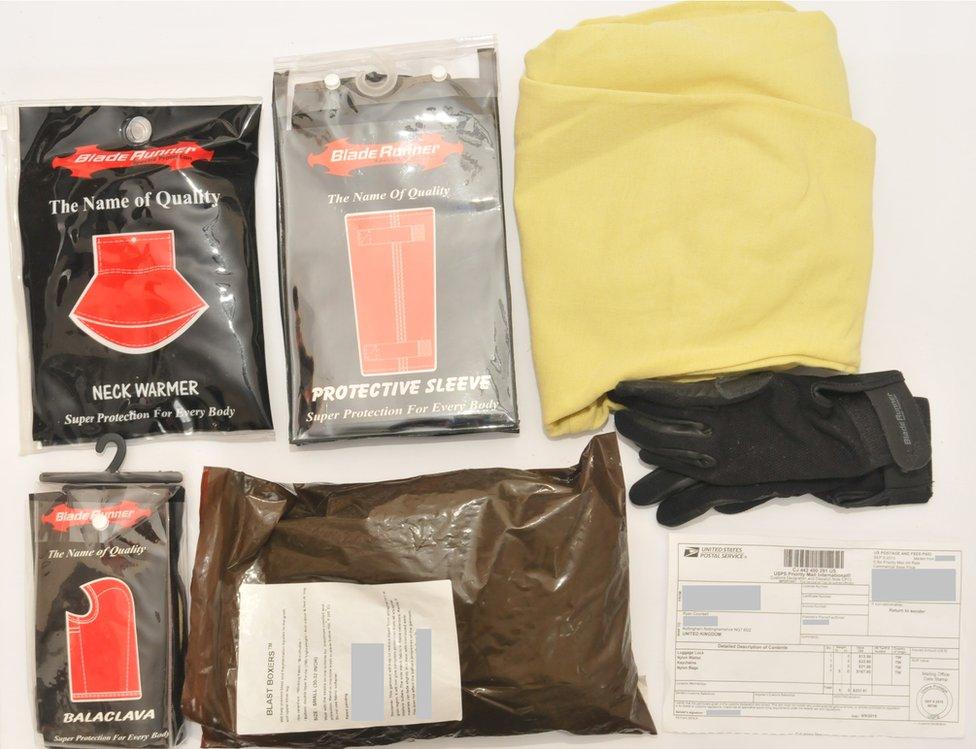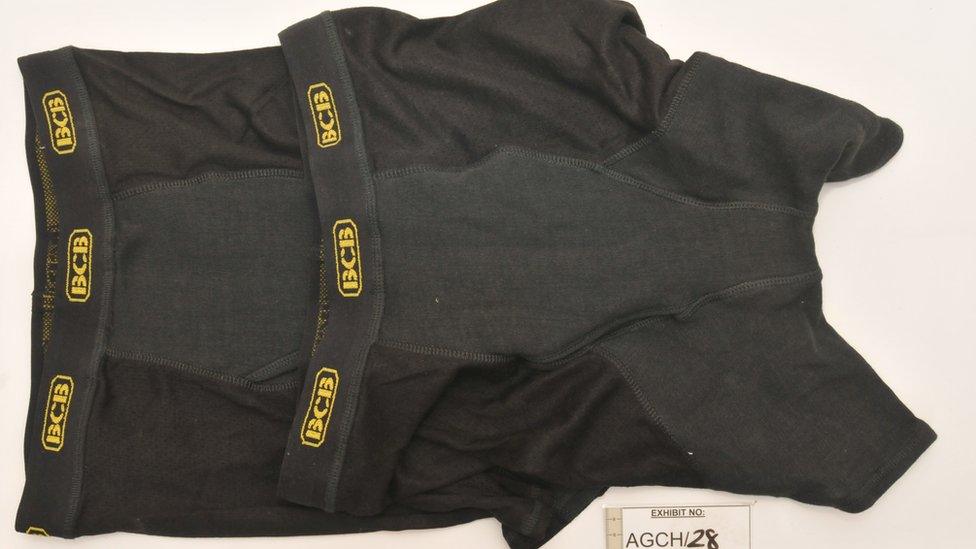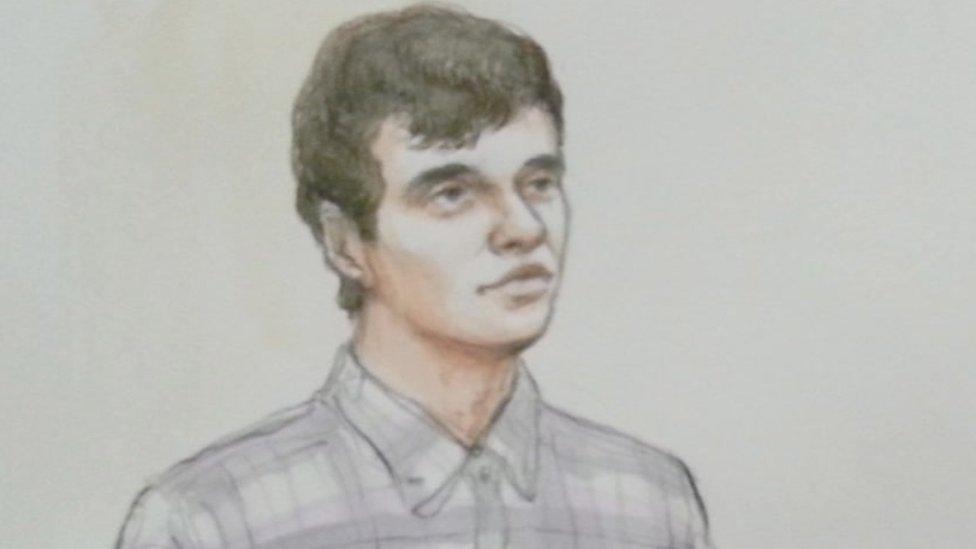Nottingham Asda worker guilty of terrorist charges
- Published

Ryan Counsell claimed his interest in the Philippines was because he wanted to live "off grid"
An Asda worker has been found guilty of trying to join a Islamist terrorist group in the Philippines.
Ryan Counsell, 28, a Muslim convert from Nottingham, had denied four charges, including having possession of an al-Qaeda bomb-making guide.
He planned to join Philippines-based terrorist group Abu Sayyaf, which is affiliated with so-called Islamic State (IS), Woolwich Crown Court heard.
He did not show any emotion as the jury returned its verdict.
Updates on this story and more from Nottinghamshire
The married father, who worked at the Hyson Green branch of Asda, claimed his interest in the Philippines was because he wanted to live "off grid".

Officers found protective clothing including "blast boxers" inside Counsell's home
He also said he downloaded IS videos, some of which showed beheadings, so he could analyse and write articles about them out of a "business interest".
However, at Counsell's home in Forest Fields, police also discovered an article about how to make a bomb.
Officers also found military equipment and clothing to protect against shrapnel from explosions, some of which was inside a suitcase in a child's bedroom.
Det Supt Simon Atkinson, of the North East Counter Terrorism Unit, said "immediate action" was taken to stop Counsell.

Counsell had ordered pairs of "blast boxers" in preparation for his trip
He said: "He [could have put] himself in danger and others in danger over there. He could then return with his ideas and ideology, training equipment and commit terrorist acts."
The court heard Counsell converted to Islam at 21 and taught himself about the religion from extremist websites.
Adam Deen, managing director at Quilliam, a counter-extremism think tank, said: "Converts are vulnerable to radicalisation because they are quite isolated and they only know of Islam what the extremist recruiters will tell them.
"Whereas if you look at, for example, a young Muslim, he may have family members that will be able to educate him and give him a counter narrative if you like, but in the case of a convert, that doesn't exist."
- Published18 January 2017

- Published16 January 2017

- Published11 January 2017

- Published5 January 2017
